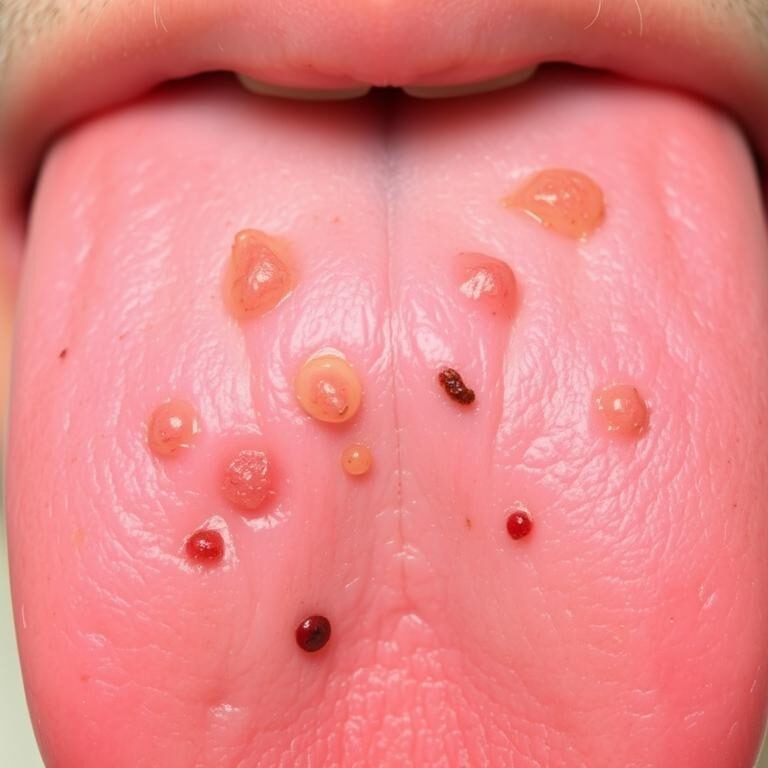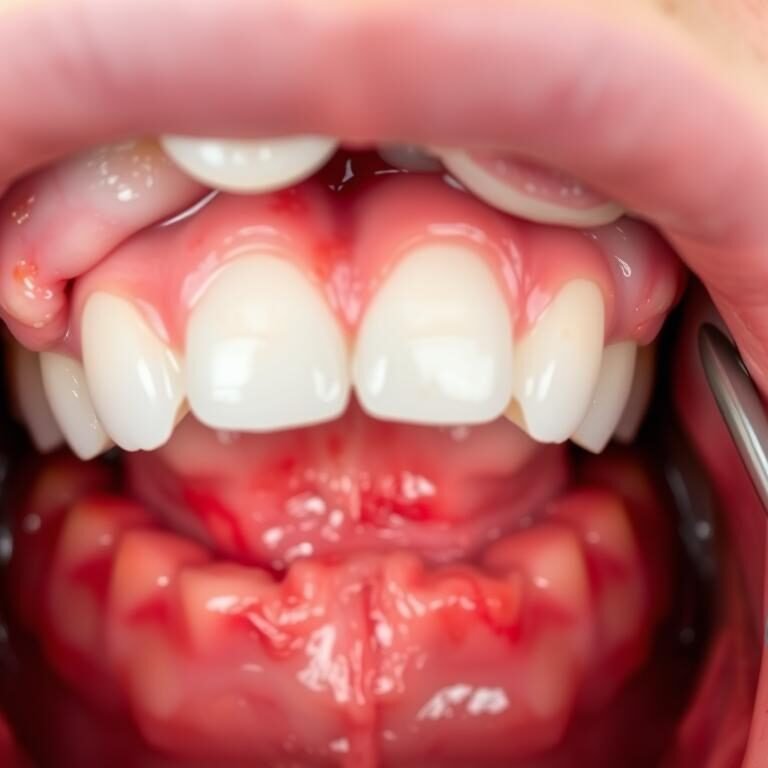Table of Contents
Understanding Toothaches: Causes and Symptoms
Toothaches can be a debilitating and painful experience, causing discomfort that can make it difficult to eat, speak, or even concentrate. Understanding the causes and symptoms of toothaches is essential for seeking appropriate treatment and finding relief. One of the most common causes of toothaches is dental decay, which occurs when bacteria in the mouth produce acids that erode the tooth enamel. This can lead to the formation of cavities, which can expose the sensitive inner layers of the tooth and cause pain. Other causes of toothaches include gum disease, tooth fractures, abscesses, and impacted wisdom teeth.

When it comes to the symptoms of a toothache, individuals may experience varying levels of pain, ranging from a mild discomfort to severe throbbing. The affected tooth may be sensitive to hot or cold temperatures, as well as to pressure from biting or chewing. In some cases, individuals may also experience swelling in the surrounding gums, a foul taste in the mouth, or even fever. It’s important to note that toothache symptoms can be indicators of underlying dental issues that require professional attention. Ignoring or self-medicating a toothache can lead to further complications and potentially even tooth loss. Seeking prompt dental care is therefore crucial to accurately diagnosing the cause of the toothache and developing an appropriate treatment plan.
Importance of Seeking Professional Dental Care
Seeking professional dental care is of utmost importance when it comes to maintaining optimal oral health. While regular brushing and flossing at home are essential, they are not sufficient to address all dental concerns. Professional dental care provides a comprehensive approach to oral health, ensuring any potential issues are detected and treated promptly.
One of the key benefits of seeking professional dental care is the ability to undergo regular check-ups and cleanings. These visits allow dentists to assess the overall health of your teeth and gums and identify any signs of potential problems such as tooth decay, gum disease, or oral cancer. Early detection is crucial in preventing these conditions from progressing, which can lead to more serious complications and costly treatments.
In addition to routine check-ups, professional dental care provides access to specialized treatments and procedures that cannot be performed at home. From dental fillings and root canals to orthodontic treatments and teeth whitening, dentists have the expertise and tools necessary to address a wide range of dental concerns. By seeking professional care, you can rest assured that you are receiving the most appropriate and effective treatment for your specific needs.

Furthermore, dentists are equipped with advanced technology and techniques that ensure accurate diagnoses and optimal treatment outcomes. They undergo extensive education and training to stay up-to-date with the latest advancements in dental care. By entrusting your oral health to a professional, you are benefiting from their expertise and ensuring that you receive the highest quality care available.
Overall, seeking professional dental care is essential for maintaining good oral health. Regular visits to the dentist allow for early detection of issues, access to specialized treatments, and the assurance of receiving optimal care. By prioritizing professional dental care, you can safeguard your teeth and gums, preventing future complications and ensuring a healthy smile for years to come.
Maintaining Good Oral Hygiene to Prevent Toothaches
Good oral hygiene is essential for preventing toothaches and maintaining overall dental health. By practicing proper oral hygiene habits, you can significantly reduce the risk of tooth decay and gum disease, which are common causes of toothaches.
One crucial aspect of maintaining good oral hygiene is regular and thorough brushing. It is recommended to brush your teeth at least twice a day, using a fluoride toothpaste and a soft-bristled toothbrush. Brushing not only helps remove plaque and food particles from the teeth but also stimulates the gums, promoting good oral health.
In addition to brushing, flossing is equally important in preventing toothaches. Flossing helps remove plaque and bacteria from the areas between the teeth and along the gumline, where a toothbrush cannot reach. It should be done at least once a day, using a gentle back-and-forth motion to ensure effective plaque removal.
| Tips for Good Oral Hygiene | Description |
|---|---|
| Brushing | Brush teeth twice daily with fluoride toothpaste. |
| Flossing | Floss daily to remove food particles and plaque. |
| Mouthwash | Rinse with antimicrobial mouthwash to kill bacteria. |
| Regular Dental Visits | Visit the dentist for check-ups and cleanings twice a year. |
| Healthy Diet | Limit sugary and acidic foods, eat a balanced diet. |
| Hydration | Drink plenty of water to wash away food particles. |
| Proper Technique | Use proper brushing and flossing techniques. |
| Avoid Tobacco | Avoid smoking or chewing tobacco, which can harm gums. |
Furthermore, incorporating mouthwash into your oral hygiene routine can provide additional protection against toothaches. An antimicrobial mouthwash can help kill bacteria and freshen your breath, promoting a healthy oral environment.
It’s also vital to maintain a healthy diet and limit the consumption of sugary and acidic foods and beverages, as they can contribute to tooth decay and enamel erosion.
By following these oral hygiene practices diligently, you can significantly reduce the risk of toothaches and enjoy optimal dental health. However, it is important to remember that regular dental check-ups are equally crucial. Consulting a dental professional for professional cleanings and examinations can help identify any early signs of dental issues and ensure prompt treatment, further safeguarding against toothaches.
The Power of Saltwater Rinse for Toothache Relief
Saltwater rinse is a simple yet effective remedy for toothache relief. This natural solution works by reducing inflammation, killing bacteria, and soothing oral discomfort. The high saline content of the rinse helps draw out any fluid or pus that may be causing the toothache, providing temporary relief and promoting healing.
To prepare a saltwater rinse, dissolve half a teaspoon of salt in eight ounces of warm water. Make sure the salt is completely dissolved before use. Then, swish the mixture around your mouth for about thirty seconds before spitting it out. Repeat this process a few times a day or whenever needed for relief.
It is important to note that while saltwater rinse can provide temporary relief for toothaches, it is not a substitute for professional dental care. If you are experiencing persistent or severe tooth pain, it is crucial to seek the expertise of a dentist. They will be able to diagnose the underlying cause of the toothache and provide appropriate treatment to address the issue effectively.
Effective Use of Clove Oil for Temporary Toothache Relief
Clove oil has long been recognized as an effective remedy for temporary toothache relief. This natural treatment has been used for centuries due to its analgesic and antimicrobial properties, making it a popular choice for alleviating tooth pain. The active ingredient in clove oil, eugenol, acts as a natural anesthetic and reduces inflammation in the affected area. Its antimicrobial properties also help in preventing further infection.
To use clove oil for temporary toothache relief, simply dip a cotton ball or swab into a small amount of oil and apply it directly to the affected tooth and surrounding gums. Gently massage the area for a few minutes, allowing the oil to penetrate the tooth and provide relief. It is important, however, to exercise caution as direct contact with the oil can cause irritation or even burns to the gum tissue. Therefore, it is advisable to dilute the clove oil with a carrier oil such as coconut or olive oil before application.
While clove oil can provide temporary relief, it is essential to seek professional dental care to address the underlying cause of the toothache. A toothache is often a sign of an underlying dental issue such as tooth decay, gum disease, or a dental abscess. Neglecting professional dental treatment may lead to further complications and potential tooth loss. Therefore, even though clove oil may provide temporary relief, it is crucial to schedule an appointment with a dentist to address the root cause of the toothache and receive appropriate treatment.
Soothing Toothaches with Cold Compresses
Cold compresses can be an effective and soothing remedy for toothaches. The application of a cold compress to the affected area can help reduce inflammation, numb the pain, and provide temporary relief. By constricting the blood vessels in the area, a cold compress can help alleviate the throbbing sensation often associated with toothaches.
To use a cold compress for toothache relief, start by wrapping a few ice cubes in a thin towel or placing them in a plastic bag. Gently press the cold compress against the cheek, near the affected tooth or gum. Hold it in place for about 15 minutes, then remove and take a short break before reapplying if necessary. It’s important to note that the cold compress should never be directly applied to the tooth or gum as this can worsen the pain. Additionally, it’s crucial to avoid keeping the cold compress on for too long, as prolonged exposure to extreme cold can lead to tissue damage.
The Benefits of Peppermint Tea for Toothache Relief
Peppermint tea has long been celebrated for its numerous health benefits, including its potential to provide relief from toothaches. The soothing properties of peppermint, combined with its natural numbing effect, make it an effective remedy for tooth pain. When consumed as a warm tea, peppermint can help alleviate the discomfort associated with toothaches.
One of the main reasons why peppermint tea is beneficial for toothache relief is its ability to reduce inflammation. Toothaches often result from inflammation in the gums or tooth pulp caused by infection or trauma. Peppermint contains a compound called menthol, which has been found to possess anti-inflammatory properties. Drinking peppermint tea can help reduce inflammation in the affected area, thereby providing temporary relief from toothache discomfort.
Additionally, the cooling sensation of peppermint tea can help numb the nerves in and around the affected tooth. This temporary numbing effect can alleviate pain and provide a sense of relief. It is important to note, however, that peppermint tea may only offer temporary relief and should not replace professional dental care. If you experience persistent or severe toothache pain, it is crucial to seek the expertise of a dentist for proper diagnosis and treatment.
Utilizing Garlic for Natural Toothache Relief
Garlic, a common ingredient found in many kitchens, is not only known for its distinct flavor but also for its potential health benefits. When it comes to toothache relief, garlic can be a natural and effective solution. Garlic contains a compound called allicin, which exhibits antimicrobial and anti-inflammatory properties. These properties make it a promising remedy for toothaches caused by bacterial infections or inflammation.
To utilize garlic for natural toothache relief, you can start by creating a garlic paste. Simply crush a clove of garlic and mix it with a small amount of salt to form a paste-like consistency. Apply this paste directly to the affected tooth or the surrounding gums. The antibacterial properties of garlic can help combat the infection, while its anti-inflammatory effects may alleviate the pain and swelling. However, it’s important to note that while garlic may provide temporary relief, it is not a substitute for professional dental care. Be sure to consult a dentist to address the root cause of the toothache and ensure proper treatment.
| Method | Description |
|---|---|
| Raw Garlic Clove | Chew on a raw garlic clove to release allicin, a natural antibiotic, which may help alleviate toothache pain. |
| Garlic Paste | Crush garlic cloves into a paste and apply directly to the affected tooth for its antimicrobial properties. |
| Garlic Oil | Mix garlic oil with a carrier oil like olive oil and apply to the affected area for pain relief and infection control. |
| Garlic Salt Water | Create a gargle solution with warm water and garlic salt to reduce inflammation and kill bacteria in the mouth. |
| Garlic and Honey | Combine crushed garlic with honey to create a soothing paste that can be applied to the affected tooth for relief. |
| Garlic and Clove Oil | Mix garlic oil with clove oil for a potent analgesic and antibacterial solution to alleviate toothache discomfort. |
The Healing Properties of Guava Leaves for Toothaches
Guava leaves have long been recognized for their healing properties and their ability to provide relief from toothache discomfort. These leaves contain a variety of beneficial compounds, including flavonoids and tannins, that possess anti-inflammatory and analgesic properties. When used as a natural remedy, guava leaves can help alleviate toothache pain and promote oral health.
The anti-inflammatory properties of guava leaves can help reduce swelling and inflammation in the gums and tooth pulp, which are often responsible for causing toothache pain. Additionally, the analgesic properties of guava leaves can provide temporary relief from toothache discomfort by numbing the affected area. To utilize the healing properties of guava leaves, simply chew on fresh leaves for a few minutes or prepare a soothing guava leaf tea by boiling the leaves in water and allowing it to cool. Gargle the tea in the mouth for a few minutes before spitting it out. Regular use of guava leaves as a natural remedy for toothaches can help alleviate pain and promote oral well-being.
Reducing Toothache Discomfort with Tea Tree Oil
Tea tree oil, also known as melaleuca oil, is renowned for its potent antimicrobial and anti-inflammatory properties. These properties make it a popular choice for reducing toothache discomfort. When applied topically to the affected area, tea tree oil can help alleviate pain and promote healing.
The active compounds in tea tree oil, such as terpenes and terpinen-4-ol, possess antibacterial properties that can target and eliminate the bacteria responsible for toothaches. Additionally, its anti-inflammatory effects can help reduce swelling and inflammation, providing much-needed relief. However, it is important to note that tea tree oil should never be ingested as it can be toxic. Instead, dilute a few drops of the oil with a carrier oil, such as coconut or olive oil, before applying it to a cotton ball and gently dabbing it onto the affected tooth or gums. Remember to consult with a dental professional before using tea tree oil to ensure it is safe for your specific dental condition.

Natural Antibacterial Properties of Turmeric for Toothache Relief
Turmeric, the vibrant yellow spice commonly used in Indian cuisine, possesses natural antibacterial properties that can provide relief for toothaches. This ancient remedy has been used for centuries in traditional medicine and is now gaining recognition for its potential dental benefits.
The main component in turmeric responsible for its antibacterial activity is curcumin. Curcumin has been found to inhibit the growth of various strains of bacteria, including those that are commonly associated with oral infections and tooth decay. By reducing the bacterial load in the mouth, turmeric can help alleviate the pain and discomfort associated with toothaches.
Furthermore, turmeric’s anti-inflammatory properties can also contribute to toothache relief. Inflammation in the tooth and surrounding tissues can intensify the pain experienced during a toothache. However, studies have shown that curcumin can help reduce inflammation by suppressing the production of inflammatory molecules in the body. This can lead to a reduction in toothache discomfort and promote faster healing.
While turmeric can provide temporary relief for toothaches, it’s important to note that it is not a substitute for professional dental care. Toothaches can be caused by various underlying dental issues, such as cavities, gum disease, or tooth infections, which require prompt diagnosis and treatment by a dentist. Therefore, if you’re experiencing persistent toothache pain, it is crucial to seek professional dental care to address the root cause of the issue and prevent further complications.
Applying a Warm Salt Pack for Toothache Alleviation
A warm salt pack can be a simple and effective home remedy for alleviating toothache discomfort. Salt has natural antibacterial properties that can help reduce inflammation and fight infection in the affected area. By applying a warm salt pack, you can create a soothing effect and promote healing.
To prepare a warm salt pack, dissolve a teaspoon of salt in a cup of warm water. Soak a clean cloth or gauze in the saltwater solution, making sure it is not too hot to avoid burns. Gently apply the warm pack to the affected tooth or gums for about 10-15 minutes, allowing the saltwater to penetrate the area and provide relief.
The warm salt pack works by drawing out fluids from the swollen tissues, reducing inflammation and easing the pain associated with toothaches. It can also help fight against the bacteria that may be causing the infection. However, it is important to note that a warm salt pack is not a substitute for professional dental care. If you experience persistent or severe toothache, it is crucial to seek the expertise of a dentist for an accurate diagnosis and appropriate treatment.
The Role of Onion for Temporary Toothache Relief
Onions, commonly found in every kitchen, are not only a staple in culinary creations but also offer temporary relief for toothache. The humble onion possesses various properties that can help alleviate the pain and discomfort associated with toothaches. When applied topically, the onion’s natural anti-inflammatory and antimicrobial properties can provide temporary relief by reducing swelling and fighting off oral bacteria.
One of the key components of an onion is its sulfur-containing compounds, such as allicin, which is responsible for its distinctive odor. These compounds possess antimicrobial properties that can help combat the oral bacteria that may be causing the toothache. Additionally, onions contain flavonoids, such as quercetin, which have anti-inflammatory effects. When combined, these properties make onions a potentially beneficial and accessible remedy for those seeking temporary relief from toothache discomfort.
While onions may offer temporary relief, it is important to note that they are not a substitute for professional dental care. Toothaches can be indicative of underlying dental issues that require specific treatment from a qualified dentist. Seeking professional dental care is vital to address the root cause of the toothache and prevent further complications. If you are experiencing persistent or severe toothache, it is recommended to consult with a dentist to receive a thorough evaluation and appropriate treatment. Remember, temporary relief from an onion can supplement, but should never replace, professional dental care.
Calming Toothaches with Cucumber Slices
Toothaches can be incredibly painful and often require immediate relief. One natural remedy that has been used for centuries is the use of cucumber slices. Cucumbers are not only a refreshing and hydrating snack, but they also possess soothing properties that can help alleviate the discomfort associated with toothaches.
Cucumbers contain high amounts of water, which can help hydrate the affected area and reduce inflammation. Their cool temperature also provides a numbing effect, helping to temporarily alleviate the sharp pain of a toothache. Simply slice a fresh cucumber and place a chilled slice directly on the affected tooth or gum area for a few minutes. Repeat as needed for relief.
While cucumber slices may provide temporary relief, it is important to remember that they are not a substitute for professional dental care. Toothaches can be a sign of underlying dental issues that require the expertise of a qualified dentist. If you experience persistent tooth pain, it is crucial to seek professional care to address the root cause of the problem and prevent further complications.
Utilizing Aloe Vera Gel for Toothache Relief
Aloe vera gel has long been hailed for its soothing properties, and it can provide relief for toothaches as well. The gel derived from the aloe vera plant contains a plethora of beneficial compounds, including anti-inflammatory agents, antioxidants, and antibacterial components. When applied to the affected area, aloe vera gel can help reduce inflammation, alleviate pain, and promote healing.
The anti-inflammatory properties of aloe vera gel help to reduce swelling and inflammation in the gums, which are often associated with toothaches. Additionally, the gel contains antioxidants that can aid in repairing damaged tissues and preventing further oral health issues. The antibacterial properties of aloe vera gel can also help combat bacteria that may be causing or exacerbating the toothache. Simply apply a small amount of aloe vera gel to the affected area, gently massaging it in for a few minutes. You can repeat this process several times a day for relief from toothache discomfort. However, it is important to note that aloe vera gel should not be used as a substitute for professional dental care – it is always advisable to consult with a dentist for a thorough examination and appropriate treatment.
Effective Home Remedies for Toothache Prevention
Maintaining good oral hygiene is crucial in preventing toothaches. By following a disciplined oral care routine, you can significantly reduce the risk of developing dental problems. Brushing your teeth twice a day with fluoride toothpaste, flossing regularly, and using mouthwash can help remove plaque and bacteria, which are the main culprits behind tooth decay and gum disease. Additionally, don’t forget to replace your toothbrush every three to four months or sooner if the bristles become frayed.
Another effective home remedy for toothache prevention is adopting a healthy diet. Limiting your intake of sugary and acidic foods can protect your teeth from enamel erosion and cavities. Instead, opt for a well-balanced diet that includes plenty of fruits and vegetables, whole grains, lean proteins, and dairy products. These foods provide essential vitamins and minerals, such as calcium and vitamin D, which promote strong and healthy teeth. Moreover, staying hydrated by drinking plenty of water throughout the day helps stimulate saliva production, which aids in neutralizing harmful acids and protecting your teeth. By incorporating these simple yet powerful habits into your daily routine, you can take proactive measures to prevent toothaches and maintain optimal oral health.
What are the common causes of toothaches?
Toothaches can be caused by various factors, including dental decay, gum disease, tooth fractures, tooth sensitivity, abscesses, and sinus infections.
How can I prevent toothaches?
Maintaining good oral hygiene practices, such as brushing your teeth twice a day, flossing daily, and visiting your dentist regularly for check-ups and cleanings, can help prevent toothaches. Additionally, avoiding excessive consumption of sugary foods and drinks can also contribute to toothache prevention.
Are home remedies effective in relieving toothaches?
Home remedies can provide temporary relief for toothaches, but it’s important to seek professional dental care to address the underlying cause of the pain. While home remedies can alleviate symptoms, they may not provide a long-term solution.
How does saltwater rinse help with toothache relief?
Saltwater rinse is a natural antibacterial agent that can help reduce inflammation and kill bacteria in the mouth, providing temporary relief for toothaches. It can also help in soothing irritated gums.
Can clove oil be used to relieve toothaches?
Yes, clove oil has natural numbing properties and can be applied topically to the affected tooth or gum area for temporary toothache relief.
Is peppermint tea effective in relieving toothaches?
Peppermint tea contains menthol, which acts as a natural analgesic. Holding a cooled peppermint tea bag against the affected area can help numb the pain temporarily.
How can garlic help with toothaches?
Garlic has antimicrobial properties that can help reduce pain and fight infection. Applying crushed garlic or garlic oil to the affected tooth or gum area can provide temporary relief.
Can guava leaves alleviate toothaches?
Guava leaves have anti-inflammatory and antimicrobial properties that can help reduce toothache pain. Chewing on guava leaves or boiling them to make a mouthwash can provide temporary relief.
How does tea tree oil help with toothache relief?
Tea tree oil has natural antibacterial properties and can help reduce inflammation. Diluting a few drops of tea tree oil in water and using it as a mouthwash can provide temporary relief for toothaches.
Is turmeric effective in relieving toothaches?
Turmeric has natural antibacterial and anti-inflammatory properties. Making a paste with turmeric powder and water and applying it to the affected area can help alleviate toothache pain temporarily.
How does applying a warm salt pack help with toothache alleviation?
Applying a warm salt pack to the affected area can help reduce inflammation and ease toothache pain temporarily. The warmth can also help improve blood circulation, promoting healing.
Can onion be used for temporary toothache relief?
Yes, onion has antimicrobial properties and can help alleviate toothache pain temporarily. Chewing on a piece of raw onion or applying onion juice to the affected area can provide relief.
How can cucumber slices calm toothaches?
Cucumber slices have a cooling effect and can help numb the pain temporarily. Placing a cold cucumber slice on the affected area can provide relief from toothache discomfort.
Is aloe vera gel effective in relieving toothaches?
Aloe vera gel has antibacterial and anti-inflammatory properties that can help reduce toothache pain. Applying a small amount of aloe vera gel to the affected area can provide temporary relief.
How can I effectively prevent toothaches at home?
Besides maintaining good oral hygiene, it’s important to avoid habits such as teeth grinding, biting hard objects, and using tobacco products. These practices can contribute to toothaches and should be avoided to prevent them.











